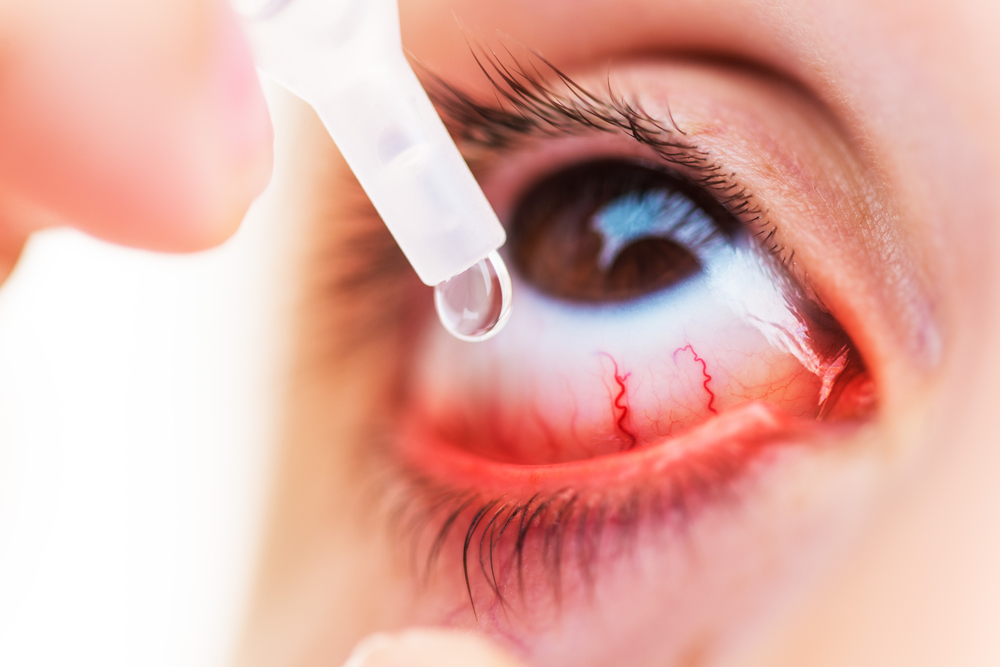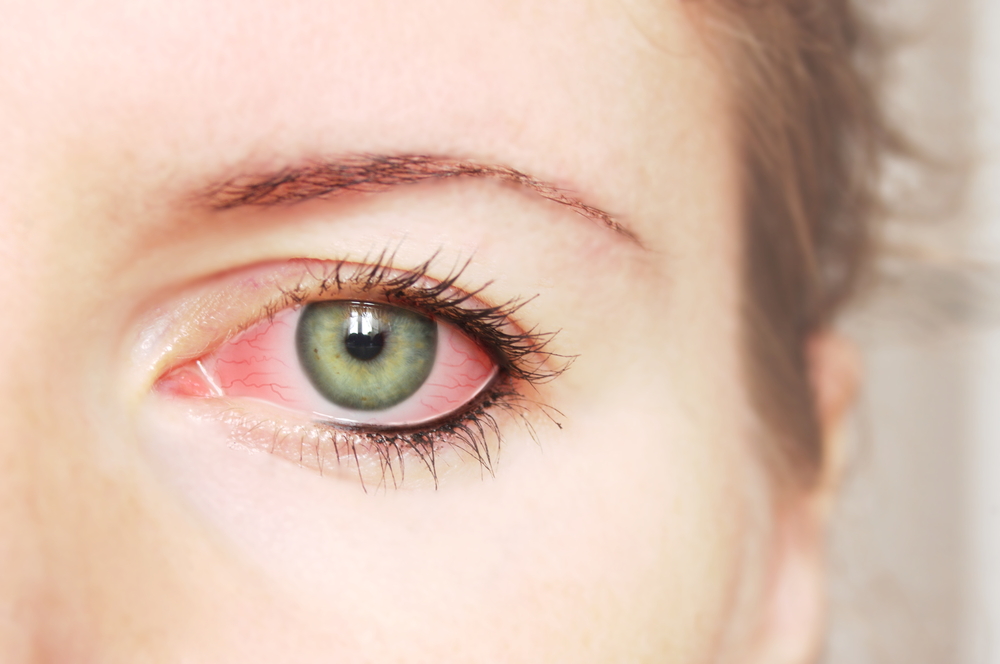An eye allergy can be troublesome. Anyone suffering from it would want quick relief from those painful, irritating red eyes. The good news is that there are both natural ways and medicines to get rid of allergic diseases.
You are sitting in a meeting at the office and eyes start to water for no reason, soon they become itchy and inflamed, and you are doing best to not to look ridiculous with sunglasses inside. Welcome to eye allergy!

Also Read: Stop constant coughing from common allergies
Eye allergy and its types
Allergic eyes can also be called as allergic conjunctivitis. In allergic disease, the patient’s conjunctiva is triggered by an allergen and produces a chain of allergic reaction as a result. The common causes of an eye allergy are allergens, which include mites, pollen, trees, grass, hair, perfumes, dander, pet, smoke, dust, mites, etc. All these allergens are airborne and when they come in contact with the eyes, gives rise to an eye allergy. An eye allergy will not cause any long-lasting or permanent damage to an individual’s vision. Allergy symptoms and signs can be distressing, but not harmful in any way. Triggers and symptoms are different for everyone. Symptoms of an eye allergy include sniffing, watery eyes, nasal congestion, sniffling, redness, itchy eyes, burning sensation, and swollen eyelids. Most people will develop at least one allergic disease at some point in life.
Allergic conjunctivitis is the main form of eye allergy, which is characterized by irritation and inflammation of the eye. This can occur due to contact with some allergen (mentioned above) to which an individual is sensitive. Other different types of allergies are:
- Seasonal and perennial allergic conjunctivitis- The type of eye allergies, mainly occurs in spring, or summer season, or develops when the level of pollution is high.
- Vernal keratoconjunctivitis – The condition is less common, and a serious eye allergy that may typically develop in young men and boys, especially those who are suffering from asthma, dermatitis, or other immune-related disorder.
- Contact or giant papillary allergic conjunctivitis- The type of allergic conjunctivitis is caused by the use of contact lens.
- Atopic keratoconjunctivitis- It is also less likely to happen and affect especially older people as well as people with a history of an inflammatory disease called dermatitis. The allergic disorder is associated with severe burning sensation, itching, and one can also experience mucus like discharge that leads to crust formation around the eyes overnight.
Self-Care Tips
An eye allergy can be annoying and can strike at any time, but fortunately, there are ways to get rid of this condition, and you can stay prepared for such an eye allergy. Depending on the kind of eye allergy that persists, any of the following remedies can be used:
- Cold compress- To get relief from those itchy eyes, you can give a chance to cold compress. What you all need to do take a soft cloth, dip it in cold water and place it on your eyes. However, the method only for temporary relief, but can be very effective.
- Rosewater- Rose water is considered as the popular home remedy for treating an eye allergy. Put three to four drops in the eye every day to get rid of any of eye allergy. Make sure that you keep closing your eyes for a few minutes to allow the soothing solution to get into the eyes and stars working.
- Repeated eye rinsing- An individual suffering from persistent eye allergy can try washing his/her eyes with cold water. Repeatedly rinsing the eyes with cold water may remove all the foreign particles, thus eliminating the allergy symptoms.
- Take your hands off- It’s hard not to touch them while they are irritating much. Rubbing eyes can make things worse. If you are continuously rubbing your eyes, it may cause mast cells to release more of those itches causing chemicals.
Also Read: 11 Tips to Reduce Indoor Allergens
The following things can also help:
- Remove contact lens
- Avoid applying eye makeup
- Wash your hands often




